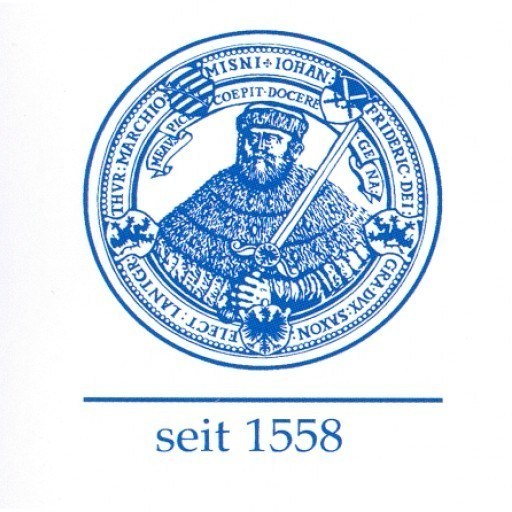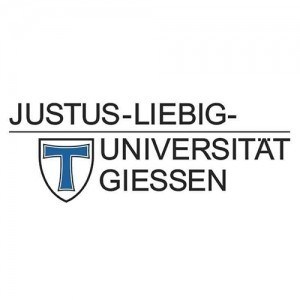Photos of university / #uni.bayreuth
Program Description:
The Master’s degree in Global Change Ecology at the University of Bayreuth offers a comprehensive and interdisciplinary approach to understanding the complex interactions between ecological systems and global environmental change. This program equips students with the scientific knowledge and practical skills necessary to analyze, predict, and develop strategies for managing ecological challenges associated with climate change, land use change, pollution, and biodiversity loss. The curriculum combines core principles of ecology, environmental science, and sustainability with advanced training in data analysis, remote sensing, modeling, and policy development. Students will engage in hands-on research projects, fieldwork, and collaborative work within international teams, fostering a multidisciplinary perspective essential for addressing pressing global ecological issues. The program emphasizes a global perspective, integrating local and regional case studies to provide practical insights into ecological processes and human impacts worldwide. Graduates will be prepared for careers in research, environmental consultancy, policy advising, and ecological management, contributing to the sustainable development goals of global communities. The program also offers opportunities for specialization in areas such as biodiversity conservation, ecosystem services, climate change impacts, or sustainable land management. Interdisciplinary collaboration, innovative research, and a strong network of international partnerships characterize the learning environment. Graduates of the Master’s in Global Change Ecology will be equipped with the theoretical knowledge, research expertise, and practical skills necessary to address ecological challenges at local, regional, and global levels and to contribute meaningfully to the development of sustainable solutions for a changing planet.
Educational organisation
Teaching is organised in groups of modules. The focus within and between these groups can be set individually.Module group O "Global Change Ecology Overview"
Module group A "Environmental Change"
A1 Climate Change
A2 Landscape Climatology
A3 Extreme Events and Natural Hazards
A4 Changes in Aquatic Ecosystems
A5 Changes in Terrestrial Ecosystems
A6 Biogeochemical Fluxes
A7 Soil Erosion and Conservation
Module group B "Ecological Change"
B1 Biogeography and Macroecology
B2 Biodiversity and Ecosystem Functioning
B3 Disturbance Ecology
B4 Spatial Ecology
B5 Global Change Impacts on Species Distributions
B6 Soil Carbon and Global Change
B7 Remote Sensing in Biodiversity Research
Module group C "Societal Change"
C1 Drivers and Consequences of Land Use and Land Cover Change
C2 Ecosystem Services and Biodiversity
C3 Global Economy
C4 Global Policy and Governance
C5 Socio-Economic Responses to Global Change
C6 Inter- and Transdisciplinary Concepts of Change
C7 Patterns of Land Use and Ecosystem Dynamics
Module group F "Free Choice"
Module group M "Methods"
M1 Introduction to R
M2 Statistical Modelling with R
M3 Monitoring and Experiments
M4 Foundations of Biogeographical Modelling
M5 Remote Sensing
M6 Time Series Analysis
M7 Environmental Forensics
M8 Ecosystem Services Assessment of Landscapes
M9 Life Cycle Assessment of Products
M10 Scientific Writing
M11 Project Management
M12 Introduction to GIS
M13 Advanced Geostatistical Methods
M14 International Environmental Law
M15 Advanced Methods in Nature Conservation
M16 Academic working methods and skills
M17 Impact Assessment of Markets and Policies on Land Use and Ecosystem Services
Module group S "International Science Schools"
Module group I "Internships"
Master's thesis (students can also use their Master's thesis as a first step towards their PhD)
Teaching methods: lectures, seminars, participation in research projects in lab and field, e-seminars, interactive internet courses, small teaching units, one-to-one interview
For further information see:
http://www.global-change-ecology.de/
(> Study > Teaching modules), (> Study > Teaching courses) and (> Regulations > Handbook of modules)
Study abroad unit(s)
Students have the opportunity to do internships abroad. Furthermore, the International Science Schools are often offered in foreign countries.Internships
At least one internship with a duration of six weeks is mandatory, while a second one is also possible. Internships can be completed both within Germany or abroad. They can be based in an economic setting, in science, in administration or in an international organisation. Several Global Change Ecology partners facilitate internships for students:- internship in an economic setting (e.g. Münchener Rück, Nature)
- internship in science (e.g. Centre for Environmental Research UFZ Leipzig, German Aerospace Center DLR Oberpfaffenhofen, Potsdam Institute for Climate Impact Research PIK Potsdam, Forschungszentrum Jülich)
- internship in administration (Bavarian State Ministry of the Environment, Federal Environment Agency of Germany, Federal Foreign Office of Germany, European Union)
- internship in an international organisation (FAO, UNFCCC, UNCCD, WWF, WRI, IHDP, IGBP, WCRP, UNEP, World Bank)
Forms of assessment
Written and oral examinations, presentations, essays, posters in accordance with the guidelinesMaster's thesis
Course objectives
The elite study programme combines the expertise of the Universities of Bayreuth, Augsburg and Würzburg with that of Bavarian research institutions and economic, administrative and international organisations. The programme is unique in Germany from the standpoint of content and at the forefront with respect to international efforts. The goal is the training of highly qualified leaders for tasks and problem-solving in science, environmental protection, and with respect to political or economic decision-making.For further information see: http://www.global-change-ecology.de/
(> Study > Programme Structure)
Language requirements
Applicants must speak English fluently. The individual language skills will be evaluated in the aptitude assessment procedure (through the letter of motivation, individual interview).Academic requirements
- Bachelor's degree (or equivalent) in biology, hydrology, meteorology, environmental physics, environmental informatics, geoecology, landscape ecology, geography, forestry science, agricultural science or other topics related to global change ecology
- successful passing of an aptitude assessment procedure
http://www.global-change-ecology.de
(> application)
Enrolment fees
Social fee: approx. 65 EUR per semesterCosts of living
Approx. 750 EUR per month to cover personal expensesJob opportunities
Due to the intensive nature of the programme, students will have only limited time for part-time jobs.Funding opportunities within the university
Students coming to Bayreuth from a partner university may have the opportunity to receive some financial support from the University of Bayreuth.http://www.international-office.uni-bayreuth.de/en/05_Grants/index.html
Arrival support
The International Office with its Service for International Students (SIS) assists students before and upon arrival (mailing of information, pick-up service from the station). It offers assistance in all administrative matters including registration and enrolment.Services and support for international students
The International Office with its Service for International Students (SIS) offers administrative, academic, and social support before and during the semester.Accommodation
The International Office offers assistance in finding accommodation in a student residence (rent approx. 120 EUR to 200 EUR per month) or private accommodation (250 EUR to 400 EUR).However, a search on the private market as a backup is advisable. You can find links to the private market on our website.










